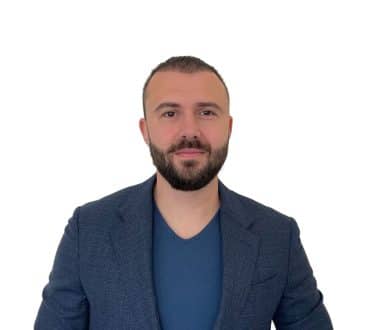4 Self-Care Skills for Sensitive, Stressed-Out People at Work

The average workplace tends to move at a breakneck pace, with endless to-do lists, 50-hour or more work weeks and 24/7 connectivity. We’re conditioned to live from the neck up, ignoring our bodies’ signals to slow down. The stressors of work can overwhelm even the most energetic workers.
But for the estimated one-fifth of the population who is highly sensitive, or empaths, the hustle and bustle can easily become overwhelming. Unless they have the skills to override stress, they live in the persistent, uncomfortable state of sensory overload. This can lead to becoming exhausted, burned out, ill or depressed.
Unfortunately, the traditional medical system often pathologizes and medicates highly sensitive people. It tends to diagnose panic disorders or depression, and prescribe medication. But what the people really need are practical self-care skills.
Learning to deal with feeling overwhelmed is an essential part of the sensitive person’s toolkit. Prevention practices can help alleviate the challenges of being on through the working hours and can help optimize their gifts of heightened perception and empathy.
If you find that you’re affected by overwhelm, use these self-care practices to take charge and keep it in check:
1. Pay attention to any signs of sensory overload. The secret to reducing overwhelm is to notice it quickly and act before sensory overload gathers momentum. Your body is a sensitive intuitive receptor. Listen to its guidance. The sooner you can act by reducing stimulation and centering yourself, the more balanced and protected you’ll be. To center yourself, focus on your breath. Tell your body, “I will treat you like a friend and pay attention to your signals. When I’m overloaded I will be quiet. If I need a break, I will make time for one.” Treating yourself well will help you feel more energized and alive.
2. Train yourself to detect emotional vampires. Practice sensing the energy around various people with whom you interact. Pay attention to how it feels when people emit positive energy. Does your vitality increase around certain people? Do you feel relaxed or uplifted? Then notice what negative energy feels like. Ask yourself, “Is this person’s energy the reason I feel anxious, sick or exhausted?” If certain people zap your energy or leave you feeling fatigued, factor this into your choices about being around them at work or in other areas of your life.
3. Prepare for stressful moments. Offset the possibility of overwhelm at critical times — such as before an intense meeting or performance review — by taking some time to unplug from stimulation. Retreat to a quiet, empty room and turn off the lights. Even a few minutes of focused breathing or meditation can center you. A little preventative self-care can recalibrate you to a more balanced state where you’re better able to handle what lies ahead.
4. Build in quiet time. The secret to happiness for highly sensitive people is creating adequate alone time. It’s important to allow yourself to stop absorbing the stress of the working world. This soothes your neurological system and reduces sensory overload so you can feel more inner peace. Taking a break from the busyness of life is good medicine. Try to take a walk during your lunch break, preferably in a park or a quiet street. Or find an empty conference room where you can take some focused, healing breaths. After you decompress, the world won’t seem as overwhelming and you’ll regain your focus and energy.
Each day, treat yourself with kindness. Honoring your sensitivities is an act of self-love.
Have you read?
# Global Passport Ranking, 2019.
# The World’s Top 100 Most Successful Unicorns, 2019.
# GDP Rankings Of The World’s Largest Economies, 2019.
# Most Expensive Countries In The World To Live In, 2019.
Add CEOWORLD magazine to your Google News feed.
Follow CEOWORLD magazine headlines on: Google News, LinkedIn, Twitter, and Facebook.
Copyright 2024 The CEOWORLD magazine. All rights reserved. This material (and any extract from it) must not be copied, redistributed or placed on any website, without CEOWORLD magazine' prior written consent. For media queries, please contact: info@ceoworld.biz








